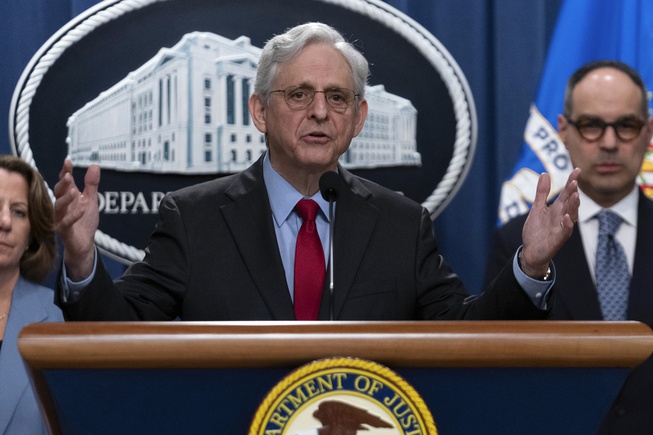The U.S. Department of Justice’s lawsuit to force Live Nation and Ticketmaster to split up has been a long time coming. For years, concert fans have complained about excessively high ticket prices and excessive fees when trying to purchase passes to see top music acts like Taylor Swift, Beyoncé, and others.
Ever since the government allowed the merger of concert promoter Live Nation and ticket seller Ticketmaster back in 2010, consumer advocacy groups have called for breaking up the combined company. The Justice Department now argues that the merger created a monopoly that has harmed music fans and stifled competition in the live music industry worth billions.
Live Nation disputes these claims and says the arguments likely won’t hold up in court. But either way, this legal battle is merely beginning and will likely drag on for a long time through the judicial system.
Why is the government suing?
The Justice Department contends that Live Nation and Ticketmaster have retaliated against rivals, shut out competition through exclusionary contracts, and abused their dominant market position.
“Fans pay excessive fees, artists have fewer opportunities, smaller promoters get squeezed out, and venues lack real choices for ticketing services,” said Attorney General Merrick Garland. “It’s time to split up the Live Nation-Ticketmaster behemoth.”
The Beverly Hills-based Live Nation, the world’s largest concert firm, has drawn government scrutiny for years. When approving the 2010 merger, regulators imposed conditions aiming to ensure ticketing competition and prevent retaliation if venues left for rivals. But this antitrust lawsuit goes much further.
The government accuses Live Nation of anticompetitive tactics, using its market power to impose inflated fees on consumers and pressure artists to use its services. This suit is part of a broader Biden administration crackdown targeting large corporate conglomerates.
Live Nation responded that breaking it up won’t fix concert pricing issues, claiming “the DOJ ignores basic live entertainment economics” like venues keeping most fees and rising competition eroding Ticketmaster’s market share.
Would breaking them up lower prices?
Some industry experts doubt the lawsuit would significantly reduce costs for fans. An analyst noted Live Nation’s scale allows it to take lower profit margins, passing more revenue to artists who ultimately set pricing based on demand for limited engagements.
However, others believe separating Ticketmaster could address excessive fees not benefiting artists and level the playing field for smaller competitors boxed out by the giant’s dominance.
The lack of competition is leading to a “tilted playing field” and “long-term gouging” through “predatory pricing,” warned one legal expert. Pandemic closures also decimated smaller promoters, further tightening Live Nation’s grip.
Could they really be split up?
While anything is possible, all agree this will be a long legal slog lasting years, not months. Disentangling businesses so deeply intertwined over a decade-plus won’t be easy.
One expert noted Live Nation’s concert promotion may struggle surviving without its lucrative ticketing operation’s high margins. However, the government may be motivated by the sheer unpopularity of Ticketmaster fees heading into an election year, when “hating Ticketmaster” is something that unites people.
Ultimately, concertgoers sick of service fees and inflated resale prices can only hope forcing a breakup could restore competition and affordability to this live entertainment industry monopoly. But a resolution likely remains years away as the legal battle just begins.



